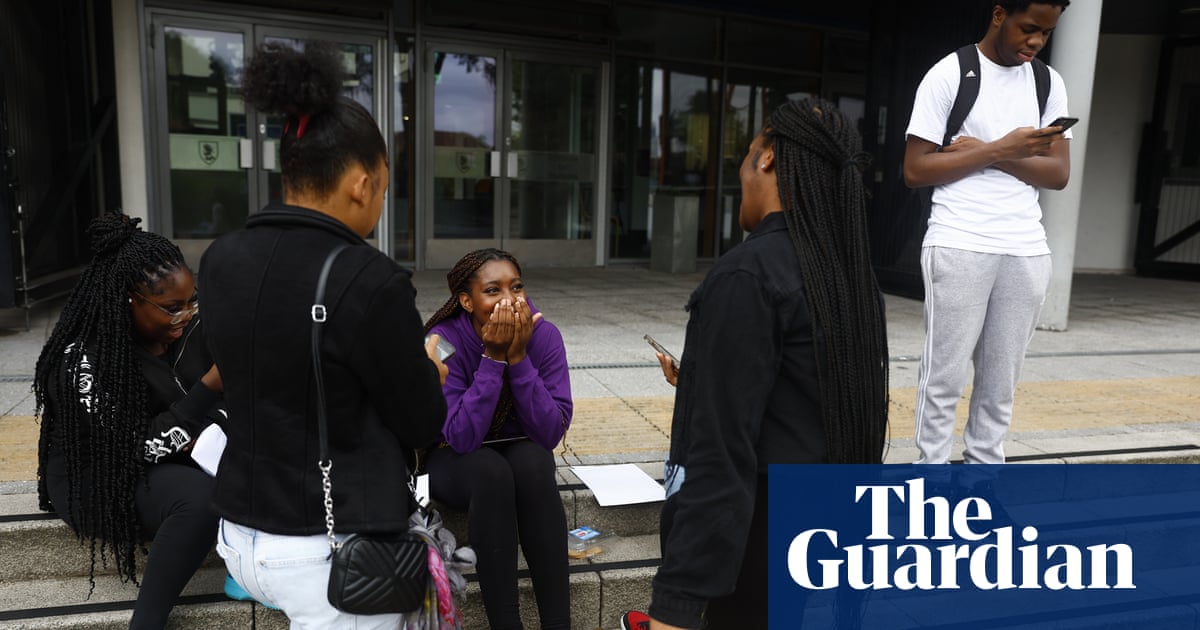
The proportion of students awarded first-class degrees in England has increased by almost 90% over the past eight years, with four in five graduates leaving higher education with either a first or a 2:1.
Official figures show grade inflation has slowed over the past year, but the Office for Students (OfS), the higher education regulator for England, said it remained a “significant and pressing issue” that threatened to erode public confidence.
The government has called repeatedly for a crackdown on university grade inflation, but, according to new data, the proportion of students with firsts has risen from 16% in 2010-11 to 30% in 2018-19, while the proportion of those gaining either a first or a 2:1 has climbed from 67% to 79%.
The Department for Education called on the regulator to intervene where necessary. “The UK has a world-class reputation for higher education and it is vital that neither low-quality degrees nor grade inflation undermine standards,” a spokesperson said on Thursday.
“It is unacceptable that the proportion of firsts continues to rise, despite repeated calls for action. Awarding powers should be used responsibly and we expect the Office for Students to take action where this is not the case.”
The OfS acknowledged a number of factors, including improved learning and teaching, may have driven some of the year-on-year increases since 2010-11, but it said a significant proportion could still not be explained.
Of the 29.5% of students who graduated in summer 2019 with a first, nearly half of the results could not be explained by changes in the graduate population, the OfS said.
Some of the country’s most competitive institutions awarded the highest proportion of firsts, including Imperial College London, where 54.7% of graduates last year got top grades, while University College London awarded firsts to more than 40% of its graduates.
Among the universities with the most striking increases were Anglia Ruskin, where the proportion of firsts jumped from 14.5% in 2010-11 to 36.7% eight years later; Bradford rose from 10.8% to 35.1%, and Kingston climbed from 14.6% to 33.6%
The OfS analysis also showed that students entering university with A-level grades below DDD were almost four times as likely to receive a first-class degree in 2018-19 as their peers in 2010-11.
Nicola Dandridge, the OfS chief executive, said the data showed the rate of increase had slowed compared with previous years, but there was still evidence of an unexplained increase in firsts at almost three-quarters (73%) of universities in England.
“Unexplained grade inflation risks undermining public confidence in higher education, and devaluing the hard work of students. Degrees must stand the test of time, which is why the OfS will continue to address this issue at both a sector-wide and individual university level,” she said.
“Where we have concerns about unexplained grade inflation at any particular university or college, we are prepared to intervene to protect the integrity of the degree awarding system for all students.”
Universities UK, which represents 140 universities in England, Scotland, Wales and Northern Ireland, said the sector had agreed a new set of principles for degree algorithm design this year, having overwhelmingly supported a sector-wide statement of intent on tackling grade inflation.
“It is essential that degree classifications are meaningful for students and employers, and universities are taking action to improve transparency, fairness and reliability in the way they award degrees. We will be publishing a review of progress later this year exploring whether further action is needed.”












